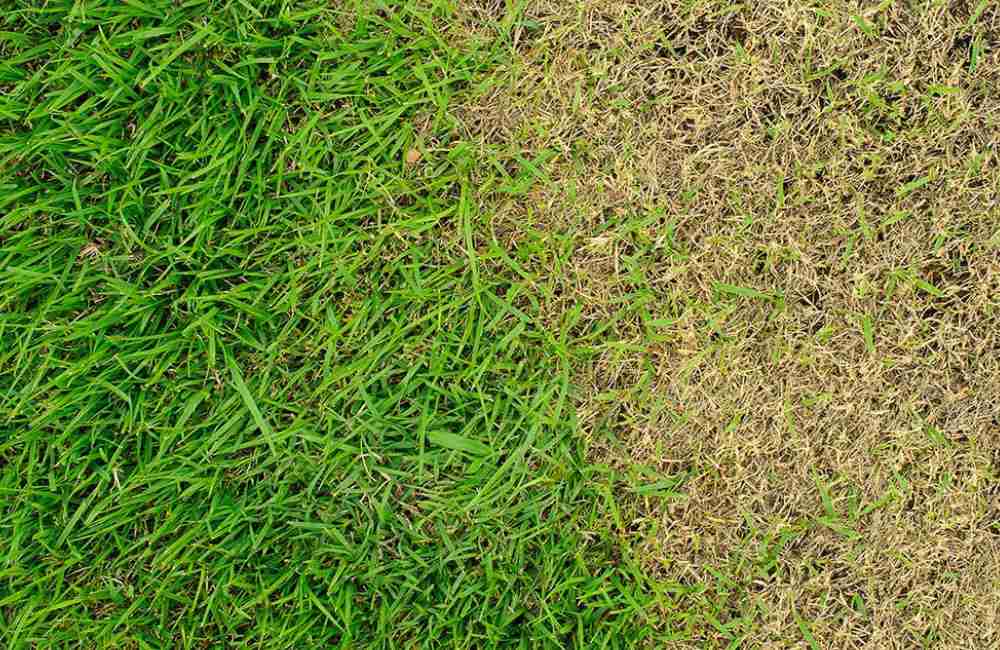Affiliate Disclosure: As an Amazon Associate, we earn from qualifying purchases.
If you have a paddling pool and you intend on using chemicals to keep the water clean you may be wondering, does chlorine kill grass and plants?
Without a doubt, chlorine can kill grass and plants if exposed to high levels. Therefore, you should be careful to prevent chlorine and chlorinated pool water from spilling on them.
Does Chlorine Kill Grass and Plants?
Chlorine is an important chemical for your inflatable pool water. It helps to kill germs that could cause sickness upon using it. However, you should be careful when using it to avoid causing harm to grass and plants.
So, does chlorine kill grass and plants? Well, it depends. If chlorine is concentrated, it can easily kill grass and plants but it’s much safer if it’s diluted.
When chlorine is in its concentrated state, it contains toxins with the capacity to kill your grass and plants. With this in mind, you should be extremely careful not to allow highly chlorinated pool water to come into contact with your lawn.
Why Does Chlorine Damage Grass?
As mentioned above, chlorine contains toxic chemicals that have different effects on plants and grass.
Depending on the concentration of the chlorine, the outcome could be the death of your valuable grass and plants around the pool area.
When the chemicals mix with essential elements of plants, they disrupt the normal processes. In turn, this leads to damage to your precious lawn and plants.
Whenever chlorinated pool water drains onto your grass, it mixes with the soil to build chloride compounds. When grass or plants absorb the compounds through the roots, you’ll notice the leaves changing in appearance.
They will look as if they have been burned. You’ll notice your lawn and the leaves of plants begin to dry up. Additionally, they turn yellow because of chlorine’s disruption of normal plant processes.
You may also notice stunted growth and leaves falling off after exposure to chlorine. Clearly, chlorine is harmful to plants. For this reason, you should prevent highly chlorinated pool water from coming into contact with your lawn or plants.
How to Prevent Pool Water from Damaging Grass and Plants
There are ways of preventing chlorinated pool water from damaging grass and plants. Here are some of the proven ways of preventing chlorine from killing your treasured lawn.
Follow Pool Water Chlorine Instructions
First and foremost make sure your water is not over chlorinated by following the instructions and by using testing strips.
If your paddling pool is chlorinated enough to kill germs but not by too much then it will make the following steps much easier.
Dilute Chlorine That Spills On Your Lawn
If you happen to accidentally spill chlorine on your lawn, the best thing to do is to dilute it with water. You should do so immediately because of the fast reaction to the toxic chemicals.
Chlorine kills germs hidden in the water, it has the capacity of killing your plants very fast. Turn on your hose or sprinkler to water the exposed area. Remember not to sprinkle a lot of water to avoid waterlogging the area.
Testing Pool Water before Draining
Another way of avoiding chlorine damaging your grass is by testing pool water before draining.
The reason for testing prior to draining is to ensure that the water you’re exposing your plants to doesn’t have harmful levels of chlorine.
The PH level that’s recommended for draining directly to plants and grass should be between 7 and 8.
Slow Draining Of Pool Water
Drain pool water slowly to ensure that absorption is gradual. If you pour chlorinated water at once, the chances of damaging your plants are high. Therefore, ensure that you drain it gradually to allow for absorption over time.
Avoid Chlorinating Inflatable Pool Water At Least 7 Days before Draining
If you’re planning to drain pool water, it’s advisable not to chlorinate it at least a week prior to draining it.
This is a safe practice as it eliminates the possibility of chlorine. You won’t have to worry about your plants and grass because the pool water will be free from harmful chemicals.
Place the Inflatable Pool Far from Grass and Plants
For your grass and plants to be safe from chlorinated pool water, it’s prudent to place the inflatable pool far from them. This will eliminate the risk of damaging them through exposure to chlorine.
Replace Your Lawn with Artificial Grass
If you are really worried about chlorine damaging your grass you could always look to replace your lawn with artificial grass.
Although not the best solution for everyone, artificial grass can be used all year round and is not affected by paddling pool chemicals.
Use a Hose to Drain Chlorinated Pool Water
You can also use a hose to drain chlorinated pool water. Using a hose allows you to direct the water to the right place other than where plants or grass are.
You can also ensure the water goes down the drain or into a water butt where the chlorine can disperse. Further tips on how to empty a paddling pool can be found in our related article.

